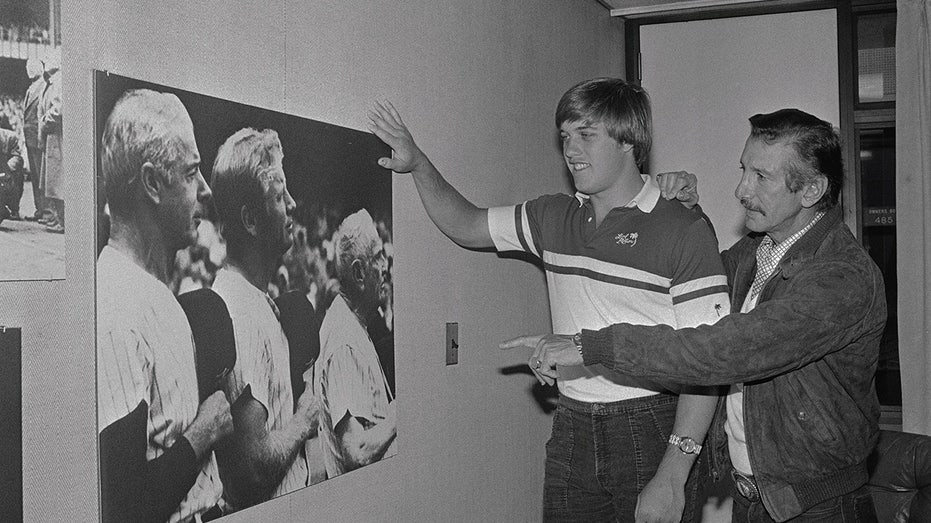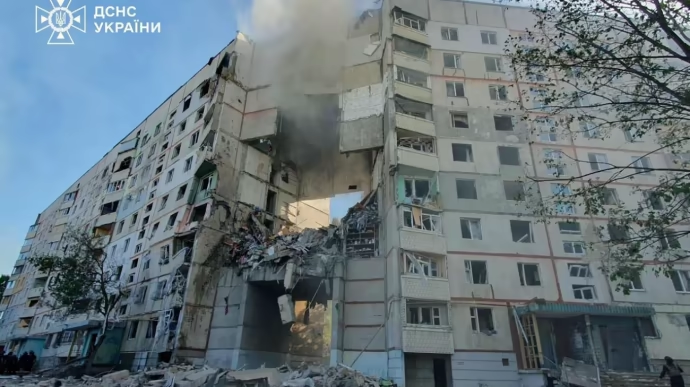UK’s Cameron says UK doesn’t down Russia drones in Ukraine, fearing escalation
After UK Air Force downed Iranian drones targeting Israel, UK Foreign Secretary says avoiding RAF engagement with Russia's drones in Ukraine allegedly prevents conflict escalation.


When asked by LBC why the UK’s Royal Air Force (RAF) couldn’t shoot down Russia’s drones over Ukraine, British Foreign Secretary David Cameron stated that engaging NATO forces directly with Russian troops could lead to a concerning escalation of the war, not providing further explanation on how downing unmanned aerial assets in Ukrainian airspace equates to direct engagement with troops.
The conversation followed UK Prime Minister Rishi Sunak’s confirmation that RAF fighter jets had shot down several Iranian drones targeting Israel over the weekend. Israel reported that Iran launched 170 drones, over 30 cruise missiles, and more than 120 ballistic missiles during its night attack on 13 April.
“We’ve done more than any other country individually to help the Ukrainians. We’ve trained over 60,000 Ukrainian troops, we were the first to give them anti-tank weapons, long-range artillery, and tanks,” Cameron said.
But the Foreign Secretary warned of the risks of using British military assets in allegedly direct confrontation with Moscow:
“I think the difficulty with what you suggest is if you want to avoid an escalation in terms of a wider European war, I think the one thing you do need to avoid is NATO troops directly engaging Russian troops. That would be a danger of escalation,” he noted.
Cameron emphasized that the best support the UK and other nations could offer Kyiv was financial, diplomatic, and military aid. He stressed the importance of providing weapons, training Ukrainian troops, and supporting Ukraine’s defense as the right course of action.
“Actually putting NATO forces directly in conflict with Russian forces, I think that would be a dangerous escalation,” the British Foreign Secretary added.
When asked why not shoot unmanned drones, Cameron said, “We are doing everything we can to help Ukrainians shoot down unmanned drones.”
Interrupted by a remark that the UK shoots down drones for Israel but not Ukraine, he continued:
“Actually, what we are doing is an interesting question, what we’re doing with respect to Israel is filling in for the Americans in terms of Op Shader, and they use their jets if they can to shoot down missiles and drones. But actually, they are not necessarily the best way of shooting down missiles and drones. Air defense systems are actually more effective,” Cameron said.
The mentioned Operation Shader is the code name for the UK’s military intervention against the Islamic State of Iraq and the Levant.
Cameron further stated that what Ukraine needs now are more air defense systems, particularly the Patriot, rather than Western planes in the skies trying to down the aerial targets. He noted that Britain doesn’t have the Patriots, while other countries do, and this system is what Ukraine needs right now.
Last fall, then-Defense Minister of Ukraine Oleskii Reznikov stated that once Ukraine receives the F-16 fighter jets, those will become part of its air defense.
Recently, the Ukrainian Air Force representative noted that Ukraine needs F-16 fighter jets and more Patriot and SAMP/T air defense systems to effectively defend against Russian aircraft dropping modernized high-explosive bombs.
F-16s will add an additional layer of defense to Ukraine’s current air defenses, likely being used to intercept Russian cruise missiles and other less-advanced surface-to-air missiles.
Read also:
- ISW says Ukrainian air defense depleted due to delayed US military aid
- Foreign Minister: Poland capable of covering western regions of Ukraine with Patriot system
- Zelenskyy urges US to strengthen allies in wake of Iran’s attacks on Israel
- Sikorski urges US to expedite aid for Ukraine, Israel after Iran’s attack on Israel
- ISW: Iran’s missile and drone attack on Israel echoes Russian military tactics used in Ukraine
You could close this page. Or you could join our community and help us produce more materials like this.
We keep our reporting open and accessible to everyone because we believe in the power of free information. This is why our small, cost-effective team depends on the support of readers like you to bring deliver timely news, quality analysis, and on-the-ground reports about Russia's war against Ukraine and Ukraine's struggle to build a democratic society.
A little bit goes a long way: for as little as the cost of one cup of coffee a month, you can help build bridges between Ukraine and the rest of the world, plus become a co-creator and vote for topics we should cover next. Become a patron or see other ways to support.



